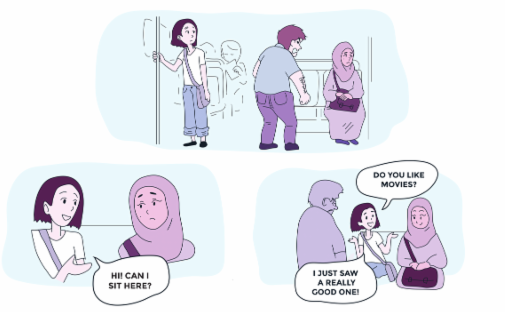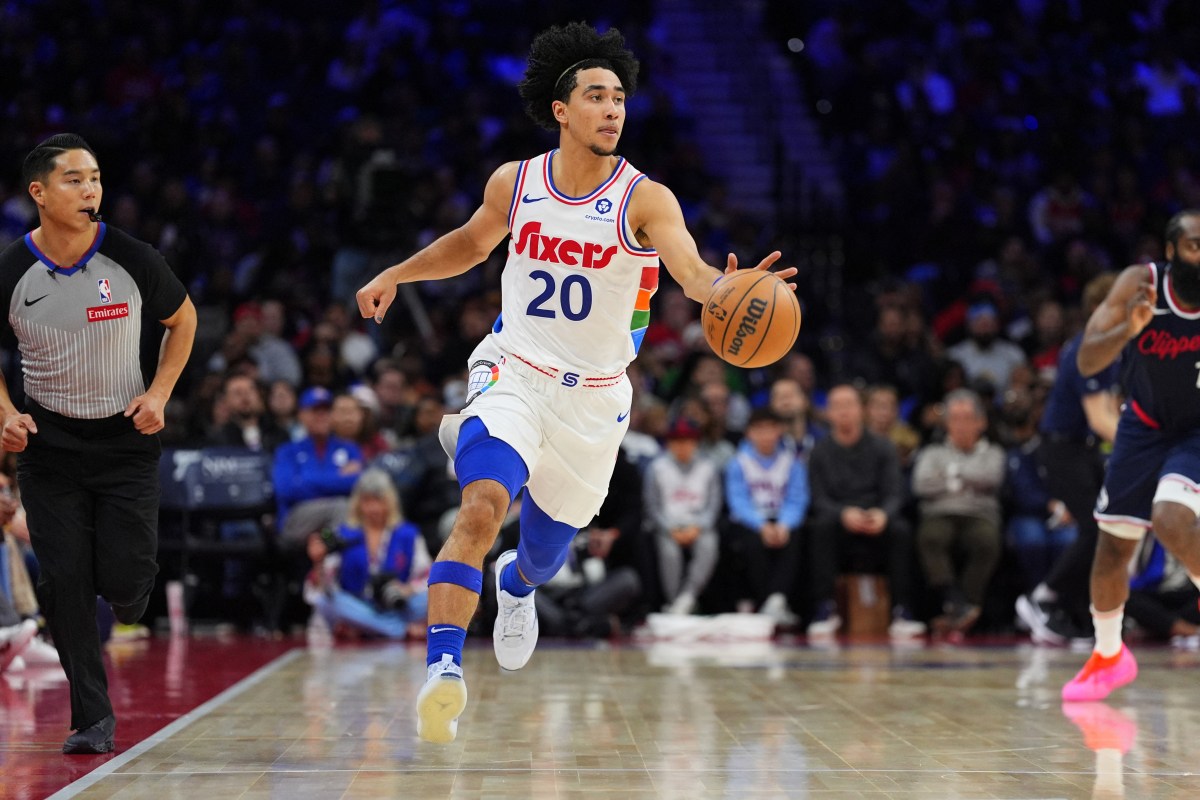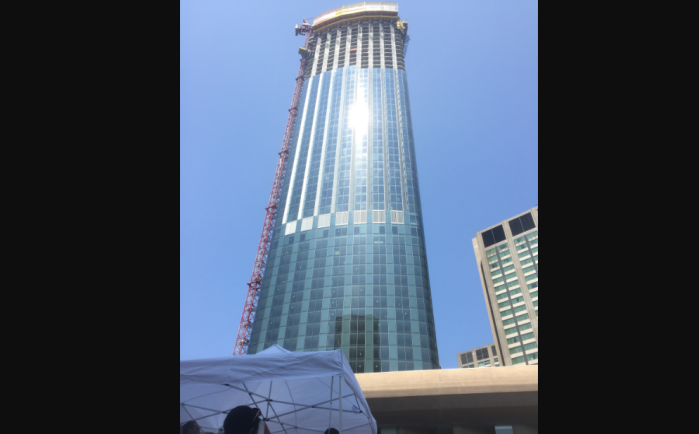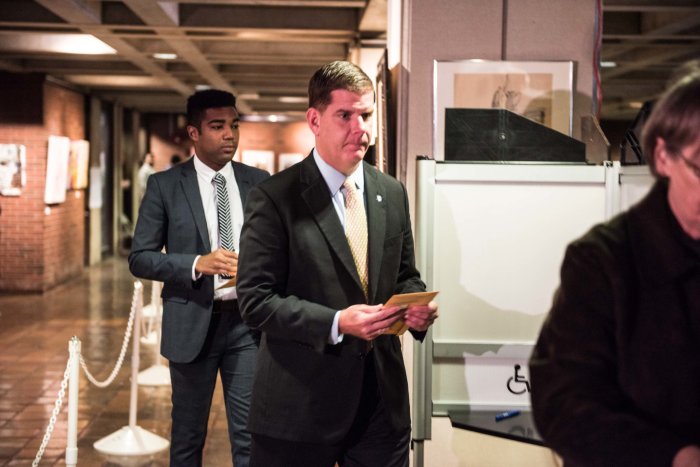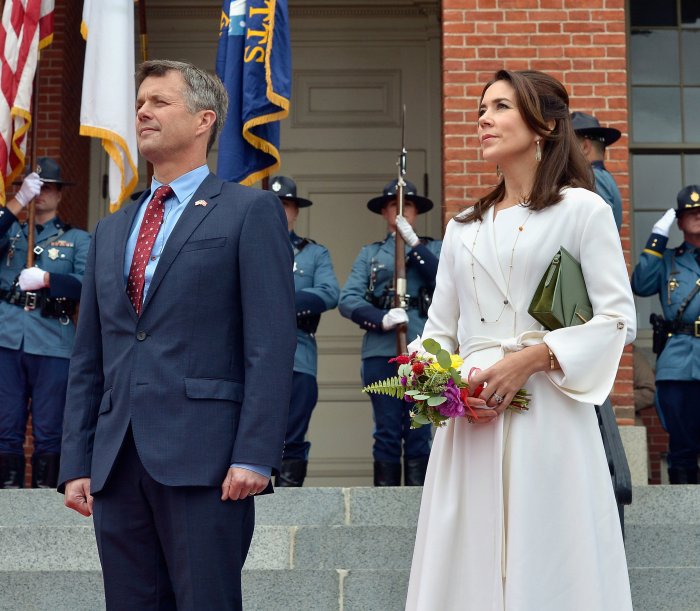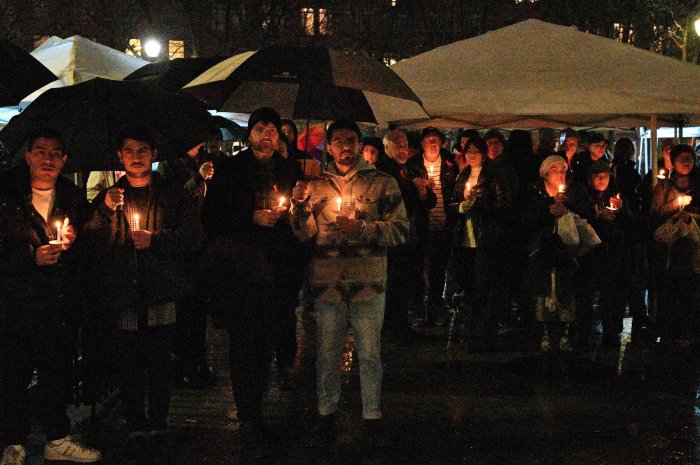What should you do if you witness Islamophobia in public?
Posters around Boston will soon give tips to help people in that exact situation.
Mayor Marty Walsh announced this week a citywide public service announcement to help raise awareness about how bystanders can de-escalate harassment and Islamophobia.
Over the next two weeks, 50 posters will be placed throughout the city on places such as bus stops.
The posters detail a step-by-step guide to “diffusing situations where an individual may be facing Islamophobia or any other type of harassment,” the city said in a statement.
The first step is to engage in conversation with the person being targeted. “Go to them, sit beside them and say hello,” the poster details. “Try to appear calm, collected and welcoming. Ignore the attacker.”
Next, pick a random subject to start discussing with the person. The campaign suggests anything from a movie you like to the weather to complementing something the person is wearing and asking where they got it.
“Keep building the safe space,” the poster suggested next. “Keep eye contact with them and don’t acknowledge the attacker’s presence.” This should prompt the attacker to leave, according to the PSA.
Finally, continue talking with the person until the attacker leaves, or escort them to a safe space if that is necessary, though the poster also advises that you “respect their wishes if they tell you they’re OK and just want to go.”
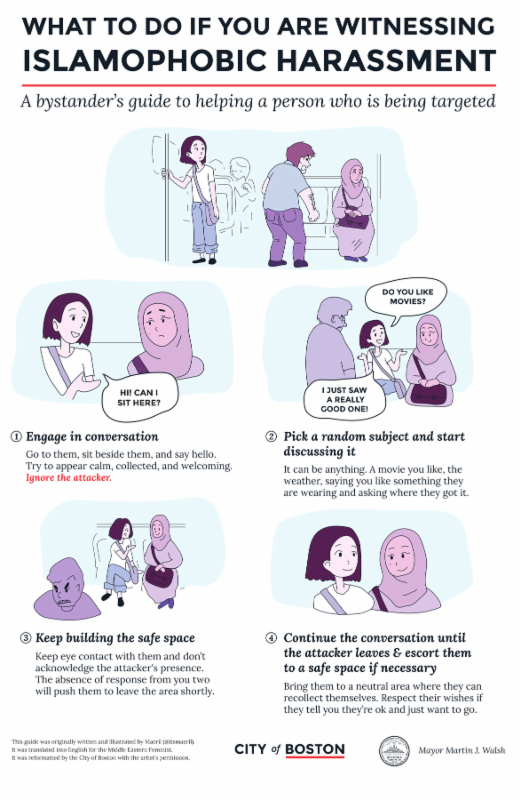
In November 2016, hate crimes against Muslims spiked, according to the FBI’s annual hate crime report, which found that in one year, anti-Muslim hate crimes rose 67 percent in the United States.
“These posters are one tool we have to send the message that all are welcome in Boston,” Walsh said in a statement. “Education is key to fighting intolerance, and these posters share a simple strategy for engaging with those around you.”
The posters were designed by Maeril, a French artist, starting in November 2015, and they have gained in popularity online since then. The technique they explain is called “non-complementary behavior,” which “disempowers the attacker by countering their expectations,” the city said in a release announcing the campaign.
John Robbins, executive director of the Council on American-Islamic Relations-Massachusetts, told Metro that the council welcomes Boston’s recognition of the “growing problem of Islamophobia.”
“[CAIR-Massachusetts] appreciates this call to concrete public action,” he said. “We hope that these PSAs will inspire individuals of conscience to intervene when safely possible, both on the MBTA and at school, work or other public spaces.”

